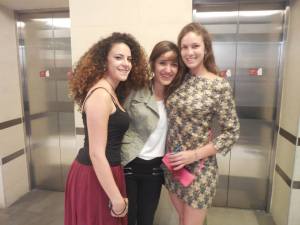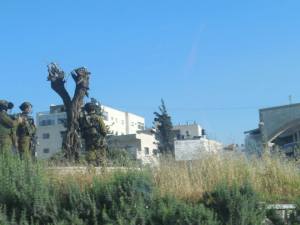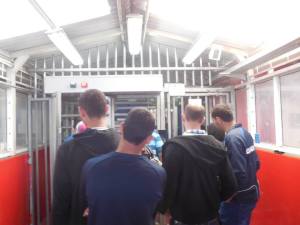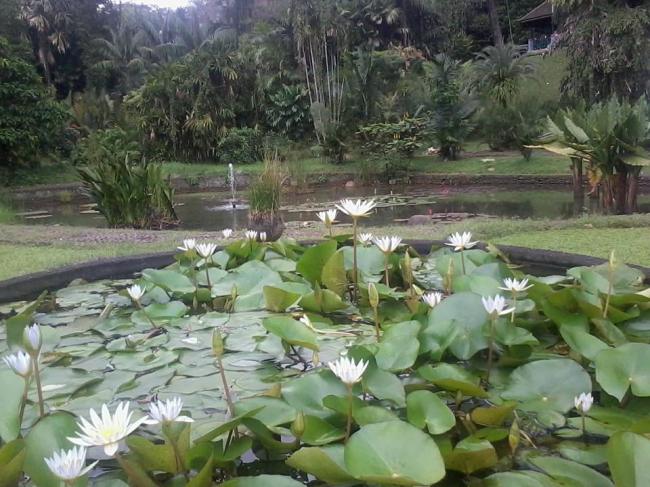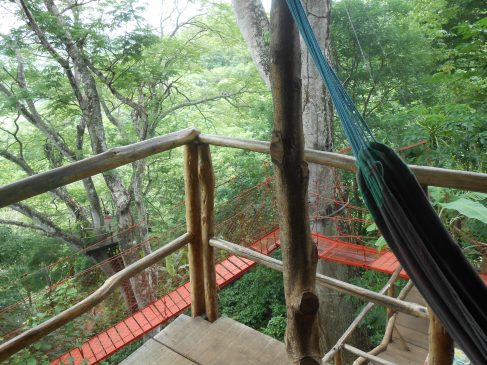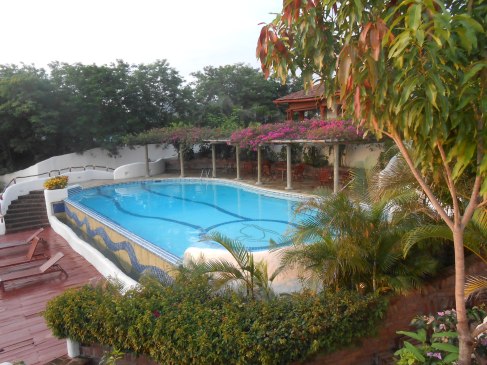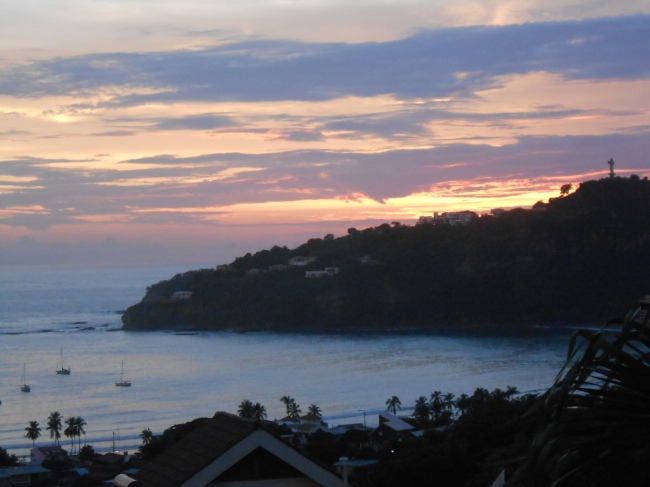Demonstrators are rioting outside my office window. Young and old from various Islamic organizations waving ‘Pray for Gaza’ signs and Palestinian flags shouting “Allahu Akbar” (God is great) are demanding the UN take action against Israeli attacks in Gaza. We’re told not to go outside and to hide our badges if we do.
It’s dusk, and my coworkers gather at a cubicle to feast on rice, tempeh and tofu wrapped in lotus leaves to break the daily Ramadan fast amid the vexatious fusion of wailing from a nearby mosque and chanting from the protestors.
Uncertainty looms in the air; since last Wednesday’s election, the city has been on edge awaiting the official announcement of whether Jokowi or Prabowo will be president for the next 5, potentially 10, years. Although early counts put Jokowi ahead, the margin was small- and both candidates claimed victory. With the decision still in limbo, the mood here feels like the calm before a storm.
Most of the UN is rooting for Jokowi, Jakarta’s governor running on an anti-corruption platform and considered a ‘people’s leader’. Prabowo, on the other hand, is a former military general with a dubious record, having been expelled from the army for ordering the kidnapping of pro-democracy activists in 1998 and recently courting big bureaucrats and hard-line Islamist extremists, most notably the Islamic Defenders Front (FPI)- a terrorist group aiming to implement Shari’ah law through violent attacks on religious minorities and hate speech condemning religious freedom.
Almost all Indonesians are Muslim, but most are moderate. Though I do cover up here more than in other places, I was relieved to find I’m not harassed or oogled for wearing long shorts, a thick-strapped tank top or T-shirt. This is no Afghanistan or Saudi Arabia; the Constitution does allow for freedom of religion and society is fairly liberal.
But many say they feel radicalism is heightening, and reports of discrimination and attacks against religious minorities have increased. Last month saw a few violent attacks from radicals on Christian prayer services. My Christian coworker said she has felt increasingly marginalized, and that many of her former Christian classmates were pressured to convert to Islam, for example by monopolistic apartment owners in small communities who will only board Muslims. Since Prabowo is courting and supported by Islamist radicals, she is understandably very worried about him possibly snagging the crown.
Prabowo shares many qualities of history’s finest dictators: a military history plagued by allegations of human rights abuses, a campaign inciting nationalism by calling for the expulsion of foreign influences (including democracy, which he calls a Western construct) in favor of authoritarianism, and appealing to the poor by promising free social services. From what I’ve read and observed, it seems the writing is on the wall for Prabowo as a future dictator: Get this guy in the office and he’ll consolidate power and change the Constitution so he can rule for a longg time.
But as we await the results, the pro-Palestinian protests are a distraction. The UN so far has only called for a cease-fire, and I’m not sure what the protestors expect the UN to do given it has yet to take a stance on the conflict.
I was in the Holy Land just 2 months ago- Jerusalem, Tel Aviv, Nazareth and the Sea of Galilee in Israel, and Bethlehem and Ramallah in Palestine.
First stop was Jerusalem- where I was thrilled to walk in Jesus’ footsteps but disappointed by how commercial and noisy the place is (it still functions as a modern city with lots of bustling markets and commotion). Here, I get to talking with a guy whose grandmother survived Auschwitz and whose anger pours from his bulging eyes and clenched teeth as he swears Jews will never again be bullied. I tell him I agree Jews need a physical place to live since age-old persecution against them is largely due to their being a nation without a state, and he insists upon giving me a sweatshirt sporting his Jewish Academy logo.

Two Palestinian classmates from Sciences Po who became my good friends suggested I visit their friends from home. So, I go to the central bus station in Jerusalem and ask for a ticket to Ramallah.
Everyone around me freezes and stares at me in shock.
<(HORRIFIED GASPS)> She said WHAT!? Ticket to WHERE!?
One very concerned older woman with a hunched back surreptitiously steers me aside and in a hushed voice with eyes shifting left and right warns me of the possibility of rape, theft and general danger of crossing into Ramallah. “You must have an exact plan if you go there,” she says, finger wagging in my face. “You can’t just show up.”
No one can tell me where to buy a ticket, so I wander to a coffee shop where I prod a waiter who reluctantly divulges the big secret: I could take a bus from Damascus Gate, the Arab area, to cross into Palestine.
I’m on my guard as I mount the bus, clutching my belongings and expecting the worst, but ease into the laid-back atmosphere on board and even eye a smiling American couple among the passengers. Everything is cool. I was going to be fine.
We arrive to Ramallah in about an hour and some jolly non-English speaking Palestinian guys from the bus with whom I communicated in hand motions (and were amazed to discover I was from New York…they understood that much) instruct a taxi to take me to my friend’s house, where she meets me looking like a hot mess.
“You ready to party?” she asks through the window as the taxi screeches to a halt. She leads me up to the stunning apartment of her friend whose dad is a Palestinian political leader imprisoned for the past 12 years on charges of anti-Israeli conspiracy.
‘HAAYYYYYYO’ everyone says as I walk in the door to a big, smiling crowd. We sit around talking, jamming, cheersing. They ask me about what it’s like on the other side since they’re either not allowed or need a permit, and all eyes are on me…. then this happened:
“Wait, is that an Israeli academy sweatshirt?” one girls asks.
Whoa. Totally forgot I was still wearing this. I’m in the house of an imprisoned Palestinian leader with an Israeli academy shirt on. She asks me if I’m pro-Israeli, and I say I’m neutral then change. Good idea anyway since we were about to hit some fancy clubs.
All is well and I instantly feel part of this crew of life-loving 20-somethings, confidently rolling with them to a string of pulsating clubs throughout the night, one in which I meet a nice gentleman my age who offers to show me around the next day. I take him up on the offer.
We meet his friend and cruise around the West Bank, windows down and radio blaring. I search for the shack-like settlements I see broadcast on TV and see none, only miles of sandy hills sliced by a towering, Israeli-built wall marking the border divide. I ask where the poverty is and they say the media hypes it up, that they both have good salaries, that there are jobs, that the conflict doesn’t affect them much. We tour Bethlehem, lunch on mezze, and share stories until it’s time I head back to Israel.
The mood suddenly switches as we approach the border, where we pass Israeli soldiers with machine guns firing what look like rubber bullets at a group of Palestinian youth. We turn off the radio and slow down a bit so I can snatch a photo then carry on- too risky to hang around.
At the checkpoint, people queue before 5 layers of iron gates, elaborate scanning machines and interviews with border patrol officers, who act condescendingly toward many commuters. People seem anxious, subservient to the officers, fidgety under the intense security. On the other side, I meet an American grad student volunteering in Ramallah and tell him I didn’t see what I was expecting to; I didn’t see much poverty or pain.
“Are you serious? People here are starving. People here have lost their land. They’re under occupation. They have random security checks in their homes and on their way to work and school. Look at how they’re humiliated just at this checkpoint,” he says.
We talk race and religion, the emergence of the Israeli state, the role of Jordan, the spillover to Lebanon, and the continual fighting. I probably learn more from this hour bus ride than any history class yet.
It was incredible to see both sides of the conflict, and I’m fortunate I could do so. And now I have a much better understanding of what these Indonesians outside my window are calling for.
Other than working and trying to keep up with politics, I’m trying to shake a nasty parasite. I’ve lacked my usual pep and felt fatigued the past few weeks, and hoping my system recovers soon….it should considering the strength of the anti-protazoa meds made me feel worse than the bug itself.
The UN interns traveled to the funky artsy town of Yogyakarta this past weekend, where we visited Hindu & Buddhist temples, watched the sunrise over a misty valley beneath a towering volcano, and saw a ballet enacting the (incredibly sexist) famous Hindu story of Ramayana with the golden Prambanan temple shimmering in the background against the starry sky.
Michelle, my Nigerian/Candadian friend mentioned in an earlier post, is the star of the bunch. This girl needs her own comedy gig, though she rejects the idea since she says she’s priming for politics. Her one-liners are hysterical, and we all spent the majority of the weekend belly laughing at her words of wisdom we dub SMS- Shit Michelle Says. Some samples:
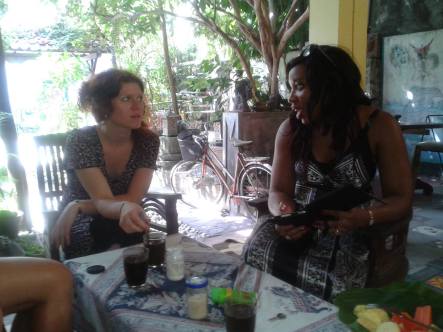
“Dude that’s seriously your default? You’re not going to get a man with that shit. You need to put a sexy picture and leave your ID in your work bag. Men are gonna think you work a lot. They pretend they like that but dude nobody does.”
“Facebook- that shit’s boring. I never go on. It’s too much for me…people sharing their lives and laughing and crying and shit. I don’t care. I have my own shit to deal with. That’s the thing with instagram- you don’t have to talk to anyone, just look at pictures. I don’t think I follow anyone but I have a nice picture on there so people follow me.”
“Look at that child and look at Beyonce. That girl took everything on Jay Z’s face.”
“Couple selfies? That’s what the guy does to show the main chick he doesn’t have a side chick.”
“I want to go back to Africa where life is easy.”
(while climbing a temple): “I’ve never been in heat like this.
me: Michelle you’re from Nigeria.
M: I know, but I’m always in cars.
I can’t make it. I think I’m gonna have a heart attack.
me: Michelle you can do it. Look at your legs, you have muscle.
M: It’s fat. There’s a difference.”
“You’re getting your period too? You know that shit’s contagious? But maybe it’s the food I ate today. I’m also on birth control but I feel like a baby’s gonna pop out of my uterus.
(Amritha): I don’t think it works like that.
M: Oh girl it does. It happened once.”
M: “You know you attract them with that stuff?
(Dinah): It’s repellant.
M: Yeah, but it’s shiny. So they come.”
“Whenever I go to America I feel smart because all people know is Housewives of Atlanta and shit like that.”
M: “There’s so many people here.
(Amritha): Yeah, white people.
M: Still, they’re people.”
me: “You have a boyfriend?
M: Yeah. I don’t know what he does in Nigeria but he puts money in my account every now and then so it’s OK with me. I had some broke ones before and they didn’t do much for me. I also had some young ones but they literally affected my IQ. My boyfriend is not young or good looking but that’s not what I was looking for. Girl I’m over that shit. It’s about what they can do for you.”
(on ex boyfriends): “Listen I don’t go back to my vomit, and you are my vomit. I dumped you for a reason. If it were the other way around, then I’d be like ‘oh hii.’ But it’s not.”
(on traditional medicine): “When you grow up with that shit you get immune to it. So you’re better off just popping a pain killer.”
(on Jakarta’s pollution): “It’s actually good if your skin peels because it means you’re reacting well to the environment. People pay to get peels…Beyonce and everyone. So actually you’re getting a natural skin peel.”
(on sugardaddys): “Girl you need to roll with a Nigerian or an Arab. They give you money just for lookin’ good. Take him to the mall, buy what you want and never call him again. Or tell him to send you money to visit, and don’t go. I’ve done it plenty of times.”
That’s a wrap. Happy work week.

